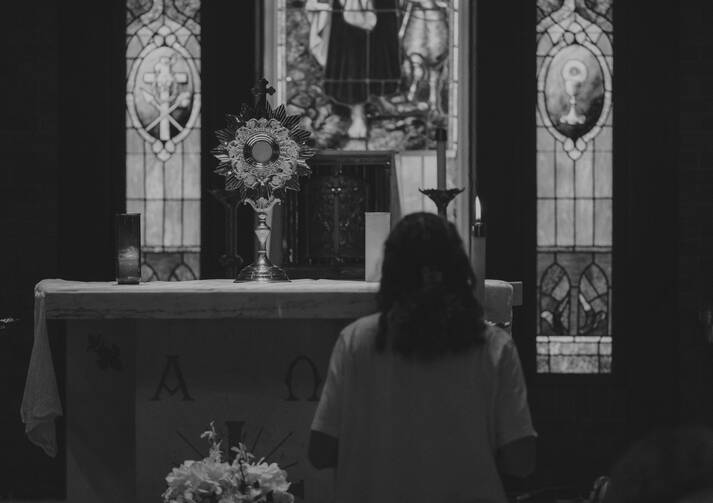A Reflection for Tuesday of the Eleventh Week in Ordinary Time
Find today’s readings here.
“If you greet your brothers only,
what is unusual about that?
Do not the pagans do the same?
So be perfect, just as your heavenly Father is perfect."
There is a dynamic of transformation that runs through Christian thought, in which the way we expect the world to work—essentially, ways of sin—are transformed by grace and our cooperation with it into a sort of virtuous version of that thing that appears to be its opposite, but is usually rooted in the same human desire or instinct. Pride, for example, is transformed into humility—Dante highlights this in his Purgatorio—but the root instinct is that of self-love. Pride is improper self-love, while humility is a proper self-love; self-hatred, on the other hand, is just another version of pride, another kind of unhealthy obsession with oneself.
This Christian lens of transformation—in which pride and humility, for example, are the sinful and virtuous versions of the same instinct of self-love—extends far beyond personal vice and virtue. In the Gospels, the disciples’ expectations that the messiah will overthrow their Roman oppressors—an expectation rooted in their desire for liberation—is subverted by a God who chooses to become weak, a baby born to a poor family and executed as a common criminal, and transformed into an overthrowing of an even more oppressive force: mortality itself.
It is through this lens of transformation that we, as Christians, are challenged to examine our own desires and understanding of how the world works, and how it could work. In today’s Gospel, Jesus urges us to love our enemies and to pray for our persecutors—a radical change of heart and of action, but rooted still in our innate desire to love one another.
In the first reading, St. Paul writes to the Corinthians about their fellow Christians in Macedonia, who although they live in extreme poverty and are socially isolated for their religious beliefs, donated well beyond their means to “the holy ones,” a group of Christians in the Holy Land. Paul is asking the Corinthians to donate to the holy ones, but, he says, he didn’t have to ask the Macedonians: They “spontaneously…begged us insistently” for the chance to contribute.
Some might look at the Macedonians and say they were foolish to donate beyond their means when their community needs it. That is a view that looks like common sense—a bit like J.D. Vance’s misreading of Augustine’s ordo amoris, which he believed meant loving one’s family first, then others in one’s immediate community, then eventually others around the world. But reading Augustine, we learn that the true order of loves is: God, then humans (ourselves and others, created in the image of God), and then temporal things like money or power, which cannot be loved in themselves but can be loved to the extent that they serve a higher good.
It’s a beautiful idea, and a true one, that our deepest human desire is to love and be loved. The transformations I wrote about earlier—from pride to humility, for example—come about from the proper ordering of loves. That proper ordering often looks different from what we expect: In today’s readings, it looks like a down-and-out community taking on a little more hardship for the sake of giving to another group in need. It looks like persecuted people praying intently for their enemies, even loving them. What would it look like in our lives, if our loves were re-ordered and our vision transformed?








